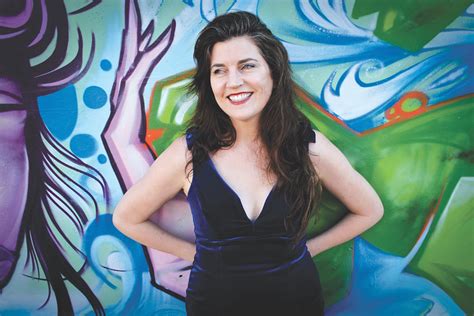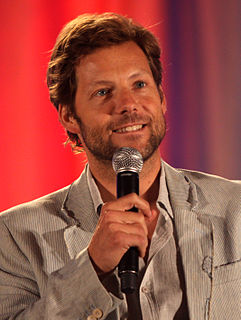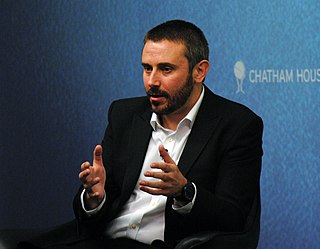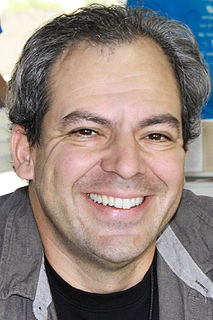A Quote by Edwidge Danticat
I'm happy to be part of this chorus of people who are trying to tell more complex stories about Haiti.
Related Quotes
To read 'Happy Talk' is to crash a party as vivid and surreal as Felini's 8. It's the business of show business, the American dream, told by a chorus of Americans locked just outside of that dream, outside of the United States, relegated to expatriate status on the shores of Haiti. Melo paints a version of Haiti that's an interior landscape perhaps even more than an externalized place. This Haiti is a plan, a memory, a morphine-drip fueled dream out to bond its inhabitants forever.
What does it matter, if we tell the same old stories? ...Stories tell us who we are. What we’re capable of. When we go out looking for stories we are, I think, in many ways going in search of ourselves, trying to find understanding of our lives, and the people around us. Stories, and language tell us what’s important.
The first week I was in Iraq, I said, "This is what I want to do. I want to be a reporter and to tell stories of people whose stories would not be told if we don't gather them." It's part of what I think of as the one-two punch of journalism. You're trying to give voice to the voiceless, and then you're also trying to hold those in power accountable, regardless of what party they're in.
I really am just trying to tell stories. But stories are often grounded in larger events and themes. They don't have to be - there's a big literature of trailer-park, kitchen-table fiction that's just about goings-on in the lives of ordinary people - but my own tastes run toward stories that in addition to being good stories are set against a backdrop that is interesting to read and learn about.
Normally you'll have a structure to a song. You'll have an intro to a verse to a pre-chorus to a chorus, kinda repeat that, maybe there's a bridge, then you'll go out on a chorus - that's the quintessential song structure - sometimes you might do a fake-out, re-do a pre-chorus but the chorus doesn't come until later, but for the most part you follow these tried and true structures.
Each of us is comprised of stories, stories not only about ourselves but stories about ancestors we never knew and people we've never met. We have stories we love to tell and stories we have never told anyone. The extent to which others know us is determined by the stories we choose to share. We extend a deep trust to someone when we say, "I'm going to tell you something I've never told anyone." Sharing stories creates trust because through stories we come to a recognition of how much we have in common.
I'm not trying to amass people in the streets. I just want them to be more aware. So many Americans, for one reason or another, they watch the news and it doesn't really give them the idea of the world. Or they don't read or travel. They have no idea that America is part of the world and not the world itself. And so anything from the travel stories I tell, that's what I'm trying to get across.






































